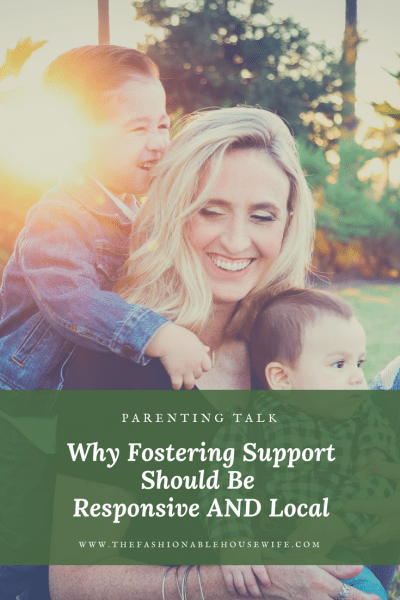
Being a foster parent is not without its challenges. Fostering agencies offer a whole heap of coordinated and responsive fostering support. But why is it important that this support is local too?
One successful foster placement can look very different from another and this is because the children in need of care away from their birth families have very different needs.
It is important that foster carers are supported with the right fostering support at the right time. But it is also important that this fostering support is locally based.
Fostering Support Is Vital
The demands of fostering are bigger and different in so many ways that parenting your own children. Fear of rejection, difficulties forming relationships, poor behavior patterns and so on, combine to create what is a difficult and challenging situation.
At the heart of this situation is a child, damaged and vulnerable, who has no idea what they should or can do. As a foster carer, you provide the answers, gently, carefully and with love. But you can’t foster alone which is why fostering agencies build a scaffold of fostering support around foster families – and that means you, as the foster parent, your partner and your children too, if you have either or both.
What does fostering support look like?
Every fostering agency approaches supporting its foster carers in different ways but there is no denying that the fostering support packages on offer are usually comprehensive.
Training
Being a foster carer is often a calling or vocation for many people but doesn’t make it any less professional or specialized. Modern foster care is highly specialized in some fields but there is now across-the-board agreement that an integral part of successful fostering support is training. As well as initial foster carer training as part of the application process, a fostering agency will continue this work with an induction programme spanning several weeks.
This way, no foster carer gets thrown in at the deep end. Foster care should never be about ‘sink or swim’.
Agency and social worker fostering support
Training and induction is a mix of group and individual support, as is the agency-wide fostering support measures in place and the social worker assigned to mentor and guide you in your early days of fostering, the first few weeks of a fostering placement and when you need them when times are difficult.
Outside Fostering Support
There are also national organizations, many specific to fostering who can lend an ear when challenges are pushing boundaries or when, as a foster carer, you need impartial advice.
Local Group Fostering Support
We learn from each other – and this is certainly true in the case of foster carers. Whether you have been fostering for years or for a matter of weeks, there is always something new to be learned and different ways to achieve things.
From social get-togethers to meetings and forums, there are numerous ways in which you can become involved in your local community of foster carers
And there’s even more…
Financial support is key because taking in a foster child comes with financial challenges too. Likewise, respite or holiday time is also essential although some foster carers choose to holiday with all of their family but that doesn’t mean that there won’t be times you need a break from it all.
And that foster support is in place too. In fact, as a foster carer you can tap into the fostering support mechanism as much as you need to, and a time when you need it most. Local, on-your-doorstep support is even better!
Fostering People is a foster agency known for making big changes to the lives of foster children and their families. And with an enviable package of fostering support, it is no wonder they are a leading agency.



